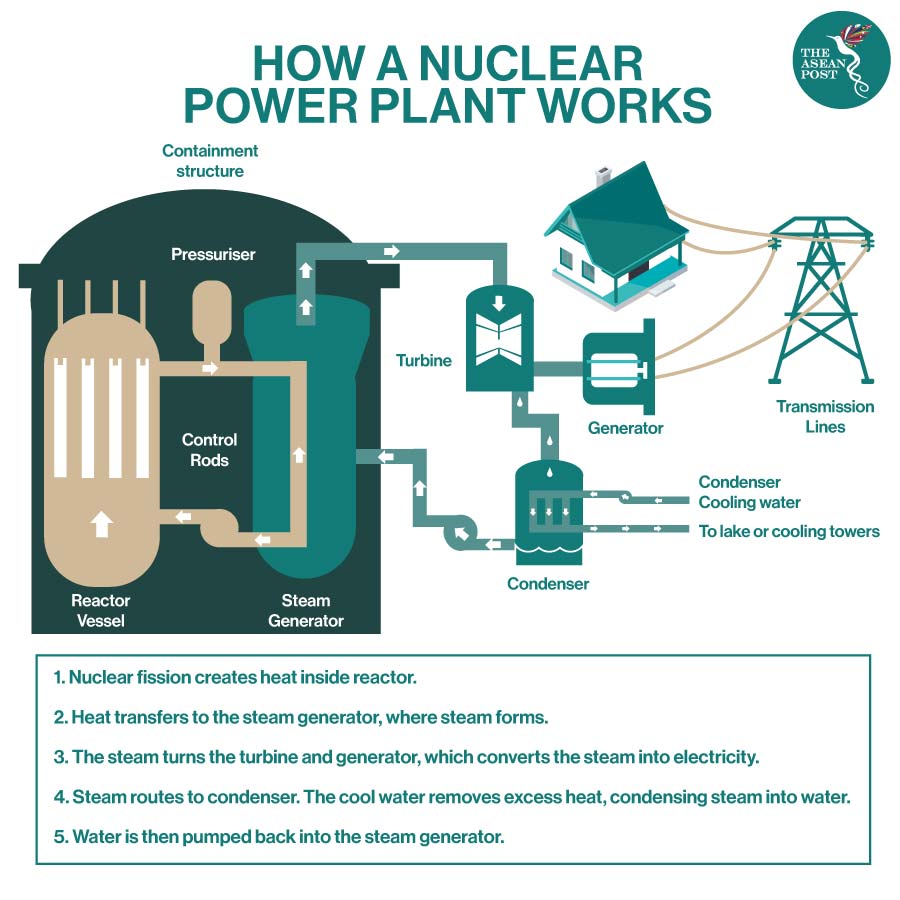
5 June was World Environmental Day (WED). It is an annual celebration and the springboard of the United Nations (UN) in facilitating awareness and action for the protection of the environment. It started in 1974 and has been the platform for raising awareness on environmental issues such as human overpopulation, global warming, sustainable consumption, wildlife crime, and marine pollution.
However, as the world commemorates and celebrates this year’s WED, it is important to speak about one of the most critical environmental issues that might cause marine pollution in the Pacific Ocean and beyond soon.
It can be recalled that a few months back, Japan alarmingly announced that it will release around 1.25 million tons of contaminated water or wastewater from the destroyed Fukushima nuclear power plant into the sea. These 1.25 million tons of wastewater can fill up around 500 Olympic-sized swimming pools.
What’s pretty disquieting is the fact that, thus far, there has never been any precedent in the world or actual practice of discharging such a huge volume of wastewater into the sea. Even the International Atomic Energy Agency (IAEA), though not opposed to Japan’s decision, has no relevant experience in this regard.
Accordingly, it will be hard to assess the long-term effects of such dumping of radioactive waste into the sea. Likewise, according to some reports, no independent testing of the water will be allowed as previously promised.
To note, nuclear waste is produced from industrial, medical, and scientific processes that use radioactive material. Nuclear waste can have harmful and damaging effects on marine ecosystems and habitats.
Perplexing
But one perplexing thing about all this is the fact that the United States (US) seems to be in agreement with this decision. In a tweet, US Secretary of State, Antony Blinken said “We thank Japan for its transparent efforts in its decision to dispose of the treated water.” This is a bit idiosyncratic and out of the ordinary given that the US continues to ban the import of farm and seafood products from the Fukushima region just like some other countries, precisely because of fears that these marine and agricultural products are contaminated with radioactive materials.
On another note, the US is also applying a double standard when it pressed China to reduce carbon emissions quickly, yet approves of the Japanese plan to dump a huge volume of radioactive wastewater into the Pacific Ocean, which will cause environmental damage.
On the other hand, unlike the US, the Philippines lifted the ban on meat and other agricultural products from Japan’s Fukushima, approximately nine years after the Fukushima disaster in 2011 at the Fukushima Daiichi Nuclear Power Plant in Ōkuma, Fukushima Prefecture, Japan. The event was primarily caused by the 2011 Tōhoku earthquake and tsunami and is the most severe nuclear accident since the Chernobyl disaster in 1986.

With the recent decision to dump wastewater in the Pacific Ocean by Japan, it is imperative to ask if President Rodrigo Duterte will review the Japanese government’s decision or not.
Protests
Nevertheless, countries in East Asia like South Korea, China, and even Taiwan are protesting against Japan’s unilateral decision to dump radioactive waste into the Pacific Ocean. This is because it will be hazardous to marine ecosystems and resources, and will affect the fishing industries of these countries.
For instance, South Korea summoned Japan’s ambassador to Seoul as an act of protest against the Japanese government’s plan of discharging large amounts of contaminated water that has built up at the wrecked Fukushima plant after treatment and dilution.
Koo Yoon-Cheol from the South Korean office of government policy coordination stated, “Our government expresses strong regret over the decision and will take all necessary steps with the safety of our citizens as the top priority. The decision can never be accepted and would not only cause danger to the safety and maritime environment of neighbouring countries but it was also made unilaterally without sufficient consultations with our country, which is the closest neighbour to Japan. We will strongly demand Japan take concrete steps to ensure the safety of our citizens and prevent any damage to the maritime environment.”
China also condemned the plan as “extremely irresponsible”. The Chinese foreign ministry said that “This approach is extremely irresponsible and will seriously damage international public health and safety and the vital interests of the people of neighbouring countries.” Taiwan also expressed similar opposition.
Likewise, the Philippines has also expressed its concern over Japan’s plan to discharge the Fukushima wastewater. Presidential Spokesperson Harry Roque stated in one of his press briefings on 15 April 2021 that Japan should take financial responsibility and comply with international law on the protection of the environment, which is a set of principles that aims to curb pollution and depletion of natural resources.
Roque, an expert on international law said that “I can only repeat the principles of International Environmental Law that I hope all countries will comply with. The first principle is we are one ecosystem. The second principle is that we are interconnected and the third principle is that the polluter must pay.”
Moreover, it’s not only neighbouring countries that have expressed their opposition and resistance to the plan of dumping wastewater into the sea. Even the Japanese people themselves are opposed to it.
For instance, the local fisherfolks of Fukushima have publicly announced their opposition to the plan saying, “…the said plan will undo the years of work rebuilding their industry’s reputation since the plant was destroyed and ruined by the huge tsunami in March 2011.”
In a Yahoo Japan survey, 41.5 percent of the 31,035 respondents disagreed with the government’s plan.
Conclusion
The unilateral plan of the Japanese government to dump wastewater in the Pacific Ocean needs to be reconsidered and studied further. Japan should at least show the necessary courtesy to consult and discuss its decision with its immediate neighbours like South Korea, China, Taiwan, and even beyond East Asia given the seriousness of the matter.
It should be noted that the bodies of water in Asia are very much connected and pollutants originating from the Fukushima water will no doubt reach other nearby areas, affecting local marine and the coastal environments and people’s health. Thus, as a responsible member of the community of nations, Japan should think twice before proceeding with its plan and prudently consult with countries that will directly be affected by such a decision.
However, Japan being a privileged country may not heed the call of its neighbours probably because it has the backing of the US. But if something goes wrong with the said plan, developing countries like the Philippines will surely be adversely affected and left on their own to suffer the negative consequences.
Likewise, it seems that only South Korea, China and Taiwan are very vocal in strongly condemning and challenging the decision of the Japanese government to release the Fukushima nuclear wastewater into the sea. Other countries seem to have lost their voice, are timid, or simply playing safe by avoiding to speak out against such a plan which is damaging to the environment.
It is also quite shocking that the international media and even the mainstream media in the Philippines is downplaying this issue which is of great importance.
Another baffling issue is why has the IAEA sanctioned Japan’s decision when not much study has been done yet on the effects of dumping such a huge volume of radioactive wastewater into the sea.
We are all dependent on our natural environment. When we destroy our environment, we all suffer. Hence, in commemoration of WED, we should remember that environmental problems and issues alike, including the planned dumping of Fukushima wastewater into the Pacific Ocean are threats to humanity and all species and certainly warrants serious and equal attention.
Source: The ASEAN Post
https://theaseanpost.com/article/japans-nuclear-wastewater-dumping-reckless


